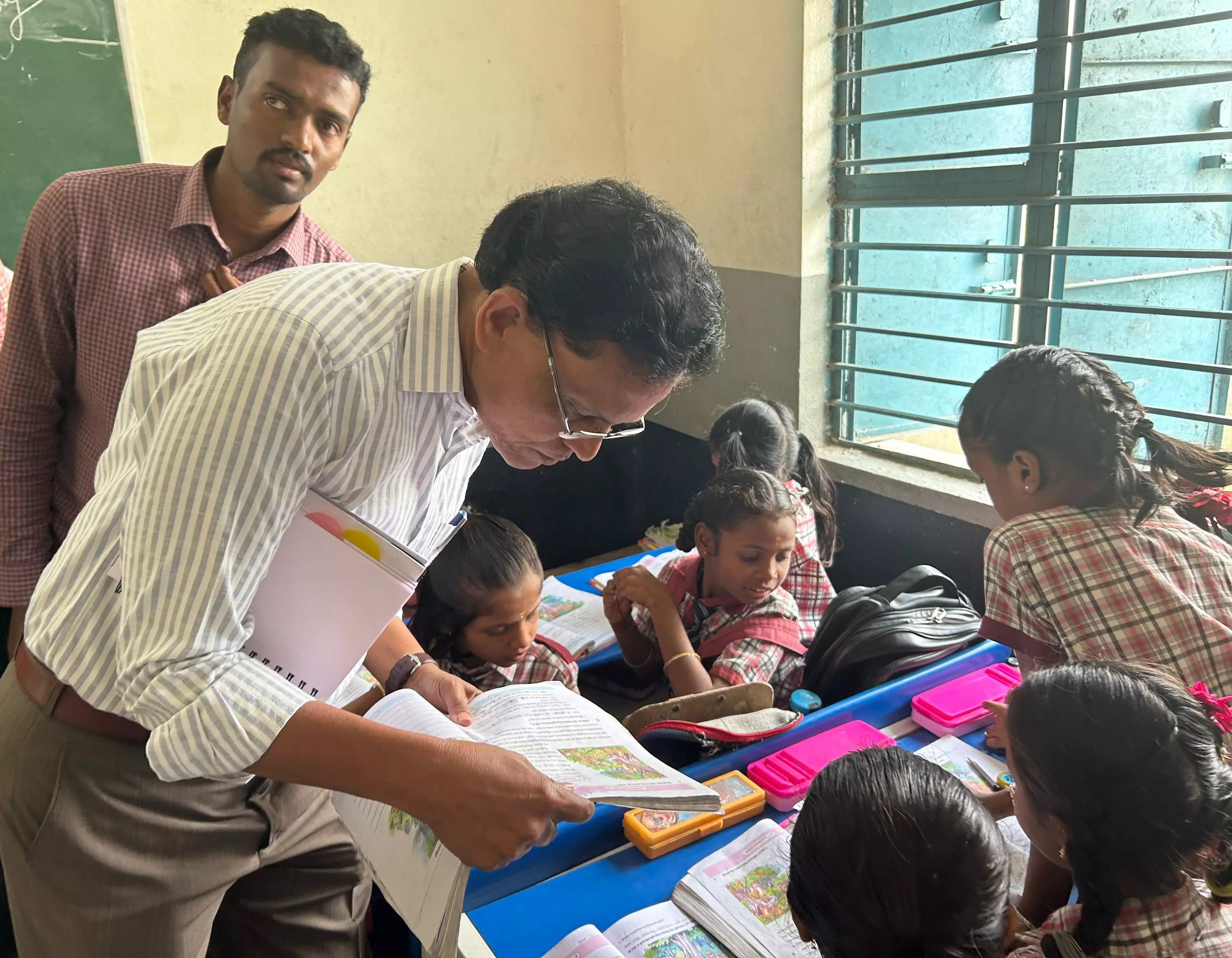
ADILABAD: The chairman of the Telangana Education Commission (TEC), Akunuri Murali, on Friday said that conditions in government schools and hostels would improve within six months. He added that the commission would soon submit its first report on mid-day meals and Gurukulas to the government.
The TEC chairman visited government schools, residential schools, and Basar IIIT, and held meetings with teachers, headmasters, and officials in Adilabad.
In an exclusive interview with Deccan Chronicle, Akunuri Murali shared his observations on mid-day meals, food poisoning incidents in schools and hostels, and the public hearings conducted on a wide range of subjects related to education. He noted that the commission is designing a website where recommendations will be published.
Excerpts of the Interview
The quality of education in government schools is poor. The mid-day meals (MDM) served to students are substandard, and the infrastructure in government schools and hostels is inadequate. However, the infrastructure in residential schools is better compared to Zilla Parishad High Schools (ZPHS) and Mandal Parishad Primary Schools (MPPS).
Small schools with 10-30 students and single teachers negatively impact the education system and the future of students in government schools. There are 7,500 government schools with single teachers for students up to Class V and two teachers for Class V in 11,500 government schools. This multi-grade teaching system is damaging the quality of education. The commission may recommend providing free transportation to students to reduce dropouts and improve access to schools.
What is the concept of big schools you are talking about?
The state government needs to create big schools with adequate students and teachers, a good environment, well-equipped classrooms, kitchens, dining halls, libraries, and playgrounds to ensure quality education. The government should establish these big schools without compromising smaller schools and should balance the development of residential and non-residential schools.
What is the status of mid-day meals (MDM) in schools?
The commission has studied the implementation of MDM in schools, Gurukulas, and hostels. Issues include delayed payments to Self-Help Groups (SHGs) responsible for preparing meals. SHGs often purchase ingredients at higher market prices but are paid lower unit costs by the government, affecting the quality of meals. There is a need to increase the unit cost to ensure better quality.
The commission toured 33 districts over the past 15 days, with me personally visiting 13 districts. The quality of MDM is particularly poor in schools in interior areas. There is still significant poverty in the erstwhile Adilabad district.
The commission will submit its first report on MDM and Gurukulas by the end of December, followed by a second report on government schools and education in January 2025. Subsequent reports will address colleges and higher education.
MDM is currently being implemented in 26,650 government schools across the state.
What are your observations on food poisoning in Gurukulas and hostels in recent months?
The number of food poisoning incidents in Gurukulas and hostels has decreased compared to previous years. However, the commission will recommend setting up a quality monitoring system, following proper protocols, and implementing scientific storage practices to further address this issue. The recent hike in mess and cosmetic charges is expected to help improve conditions.
Why are you collecting opinions on the preference between residential and non-residential schools?
Currently, 7-8 per cent of students study in residential schools, while 90 per cent attend non-residential schools. Both types of schools need to coexist, and non-residential schools should not be closed to favor residential schools. The previous government sanctioned Gurukulas without adequate infrastructure, and 600 Gurukulas are currently operating from private buildings. We will recommend permanent buildings for these Gurukulas.
What is the status of universities in the state?
The previous government neglected universities, leaving 80 per cent of teaching posts vacant. The commission will recommend immediate recruitment to strengthen universities and improve the quality of education. There is also a need to provide basic amenities at institutions like Basar IIIT.
The commission will consult all stakeholders, including civil society, before making a decision. Telangana will adopt only the recommendations suitable for the state. While the play school system in the policy is beneficial, the merger of high school and intermediate will be evaluated carefully.
Is the commission planning any study tours?
Yes, we are planning visits to Tamil Nadu, Kerala, Delhi, and Vietnam to study their education systems. Vietnam’s education model is particularly interesting as it has shown significant improvement and has cultural similarities to India.
What about the implementation of English medium education in government schools and Gurukulas?
English medium education is not being implemented effectively. For instance, students study in English medium up to Class 5 but switch to Telugu medium in high school, causing confusion.
What are your observations on tribal education in Ashram schools in Adilabad?
Languages like Gondi, Kolami, Telugu, Banjara, and Urdu are spoken in Adilabad. Introducing English alongside native languages is important. Teachers should be assigned based on their mother tongue to teach students in their native language. The commission will prepare guidelines in collaboration with NCERT.
What is your opinion on the KG to PG concept?
